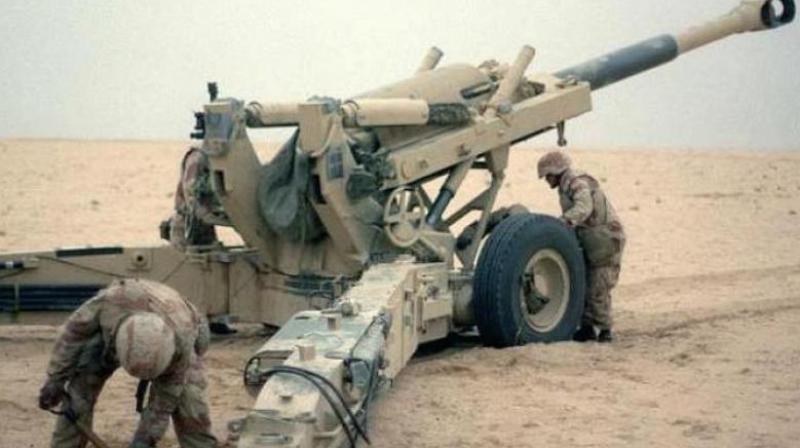Army gets big guns, a ray of hope at last
India needed to move swiftly over procurement, which is crucial to defence needs.;

The Indian Army’s artillery wing should be delighted as it has just got two units of the 159mm/39-calibre Ultra-Light Howitzers from the United States; and 143 more guns suited to hill terrain will arrive by 2021. As these guns will use Indian ammunition, they would best serve logistics and boost the Army’s state of preparedness in the most difficult terrain on the Chinese and Pakistani borders. The American howitzers will be deployed along the China border first, but there is no particular message to be read into that. With more artillery orders with an Indian manufacturer, it can safely be said the Army will soon be better prepared than it has ever been since the Swedish-made Bofors guns were inducted in the 1980s.
India needed to move swiftly over procurement, which is crucial to defence needs. The paralysis induced by the controversy over Bofors had become deep-rooted after the kickbacks scandal held the nation in thrall and led to the fall of Rajiv Gandhi’s Congress government. The Army was forced to pay the price — in not being able to acquire the best armoury. It is a moot point whether we learnt enough from Bofors to make any difference on the role of middlemen in arms procurement, but as a nation we became so paranoid over the methodology of buying artillery that we slipped into total inertia. It needed a braver and more pragmatic way of thinking to move on beyond the Bofors stupor — a path a previous defence minister, overwhelmed by his desire to project his own integrity, was unable to take, and instead turned into a virtual stumbling block over procuring armaments.
The inter-government deal with the US for the BAE howitzers was a pathbreaker. The desire to recognise the advances made by the indigenous arms industry, in technical association with foreign manufacturers, has also triggered a parallel procurement track and the Army should progressively be better off in terms of armaments, in manning and guarding the most sensitive northern and western borders with China and Pakistan. The proposal to buy 4.2-ton howitzers, which can be lifted by Chinook helicopters into forward positions, was made 10 years ago, a time lag that is sufficient to indict those who were in charge of making the decisions in all those years to keep the armed forces in shipshape condition. The separation of the political from the essential and practical was perhaps the most difficult part and it’s a comment on the Indian way that the political priorities should be so devastating as to deny the Army guns that it needs as a deterrent as well as for effective defence. In that sense, the ray of hope the first howitzers bring is that much brighter.

